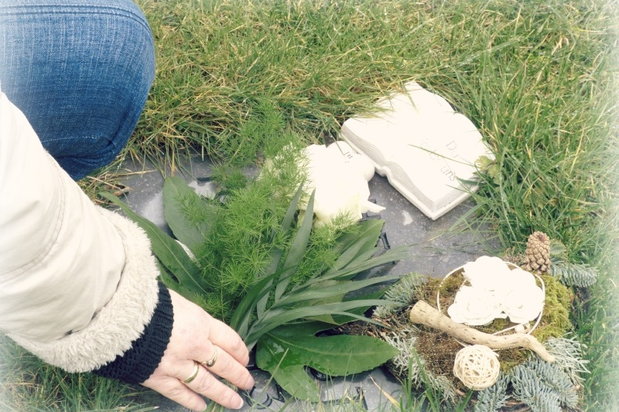Someone once told me that there are two ways to cry.
The first way comes from anger and frustration. Why did my loved one have to die? Tears roll down your cheeks. It is a cathartic experience, an almost necessary release of emotions. You usually feel better after this kind of cry. You then wash your face, acknowledge the pain and get back to your world.
The second feels like you have been stabbed in the heart. This is a form of pure torture that you feel deep in your soul–a raw and physical pain that hurts inside your body. It can make you double over in agony. You may even find yourself wailing and in denial. This type of crying does not necessarily need to involve tears because the anguish alone is so profound and real. It doesn’t have a beginning or an end. Instead, it stays and lingers with you until it becomes a constant ache.
It is usually this second type of grieving that accompanies the immense sorrow that comes from the death of a loved one. It can feel like a big black hole from which there is no escape. The torment feels everlasting without a way out.
When this occurs, you must be cautious, especially if you are a recovering addict. Death and grief can be even more complicated if you have a substance abuse past and the pain of intense loss can very easily lead you to the numbing effects of drugs or alcohol.
If you are overwhelmed by sadness and are not able to get significant help, a grievous situation can swallow you up and put you back on the path of addiction you want to veer far away from. Consider these pointers to help you mourn the loss of a loved one healthily, with as few emotional scars as possible.
1. Go to the Funeral
Closure is an easy word for people to say but, the truth is, you may never feel completely free from the death of someone you love. However, the simple step of attending a funeral or memorial service can help.
Whatever you do though, you should not attend the funeral on your own. You may feel it is “safer” to go unaccompanied, but you should not grieve alone. Enlist the help of others in your support group. This is especially true if you have not attended many memorial services. Arrive 15 minutes early to find a seat and take in your surroundings at your own pace. It may not be a comfortable situation, but with a friend or family member, you will feel supported and comforted to have someone you trust by your side.
2. Take Care of Yourself
Addicts sometimes have the stereotype of being selfish and only thinking about themselves. However, the opposite is often true. Many addicts self-medicate because they do not know how to deal with their emotions and please others at the same time.
When you are grieving, it is imperative that you care for yourself. Sadness can be exhausting. Crying can make you weary. But if you feel good physically, you’ll also feel better emotionally. You must strive to get enough sleep, eat right and exercise. (A walk can do more good than you realize as well as provide a quiet time for reflection.) The stress of a major loss can quickly deplete your energy and emotional reserves.
Since the mind and body are tightly connected, tending to both your physical and emotional needs is an integral part of getting through tough times. Do everything you can to search out alternative methods for coping and avoid alcohol and drugs to numb the pain of grief.
3. Plan for Triggers
Memories are funny things. Without proper discretion, they can play havoc on your emotions. Just as you need to avoid certain triggers for relapse and abuse, it is also essential to prepare for grief “triggers” for your recovery and sanity.
This may require some extra planning on your part. Anniversaries, holidays and milestones can all rekindle memories so be prepared for an emotional blow during these times--and know that it’s completely normal. Create healthy ideas to honor the person you love during these special occasions and include others in those plans. For example, you may want to visit the ocean and toss a wreath into the water on the birthday of the person you miss. Or take a photo of them and place it by your bedside on special dates. Honor yourself and your emotions while you honor the one who has passed.
4. Find Professional Support
Whether or not you are an addict, death and the accompanying grief that follows can become debilitating. If your distress continues to affect your life in a negative manner and the sadness feels like too much to bear, get professional assistance quickly. You cannot talk yourself out of grief but an experienced therapist can help guide you through the process. A qualified expert will assist you in working through all the powerful emotions you are experiencing. Even if you only attend a few group gatherings led by an experienced authority or a few private sessions, you will still benefit from these small encounters. Do not hesitate or worry about what others will say if you reach out to a skilled professional for additional help if you feel overwhelmed.
Remember, the single most important factor in dealing with grief is having the support of other people. Expressing feelings is also critical to the success of kicking addition and avoiding relapse during this difficult time. Sharing your loss will absolutely make the burden of grief easier to carry.
Wherever the support comes from, accept it and do not grieve alone. Connecting to others will help you heal.








